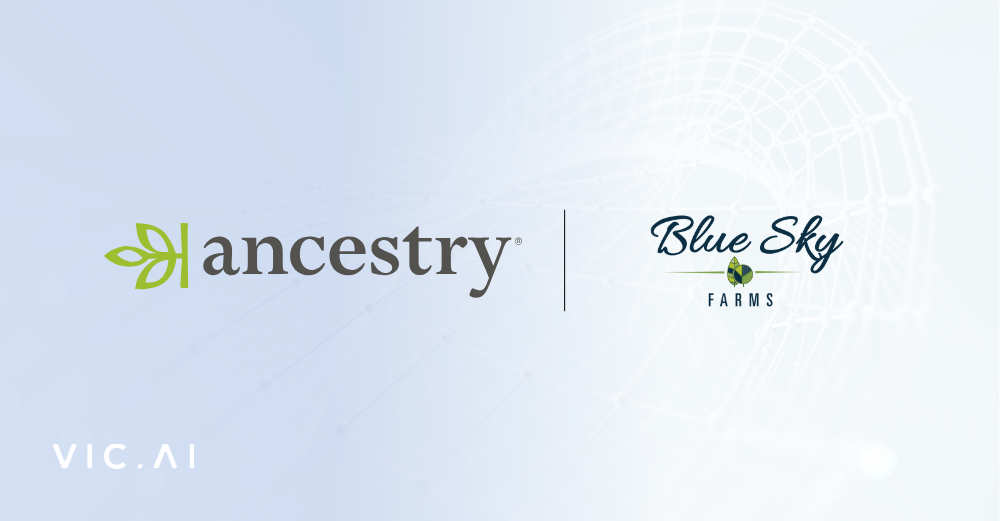As finance and accounting teams thoughtfully explore AI solutions in 2025, they face a critical strategic decision: should they build custom AI tools in-house or purchase specialized solutions from vendors? With AI adoption accelerating across the finance sector, this question has moved from theoretical to practical for CFOs and finance leaders looking to modernize their operations with Agentic AI in accounting.
Let's break down what matters most when making this decision in today's complex financial landscape.
The appeal of building your own AI solution
The "build" approach offers several compelling advantages for finance teams:
Complete customization: Creating a proprietary AI solution allows your team to design specifically for your unique financial workflows, data structures, and business rules. Your developers can fine-tune algorithms to match your exact requirements and integrate seamlessly with existing systems.
Intellectual property control: Owning your AI solution means owning the underlying intellectual property. This provides a potential competitive advantage and eliminates dependence on third-party vendors who might change pricing or discontinue support.
No subscription fees: After the initial development investment, you won't face ongoing subscription costs that can accumulate substantially over time.
However, the challenges of building in-house are substantial:
Significant upfront investment: Developing enterprise-grade AI for finance typically costs between $100,000 and $500,000 initially, requiring specialized talent that commands premium salaries in today's competitive market.
Extended time-to-value: Custom development cycles often take 12-18 months before delivering meaningful value, while finance teams need solutions today.
Ongoing maintenance burden: AI systems require continuous updating, especially as regulations change and new financial practices emerge. This creates technical debt and diverts resources from core business activities.
Talent retention challenges: Finding and keeping AI specialists with finance domain expertise is exceptionally difficult in the current job market.
The case for buying specialized AI solutions
The "buy" approach offers increasingly compelling advantages in 2025:
Rapid deployment: Purpose-built finance AI solutions can be implemented in weeks rather than months or years, providing immediate operational benefits.
Domain expertise built-in: Leading vendors like Vic.ai have already solved complex finance-specific challenges through years of focused development and real-world implementation.
Lower initial barrier: Monthly subscription models ($200-$400 per user) eliminate massive upfront investments, making advanced AI capabilities accessible even for mid-sized finance teams.
Continuous improvement: Specialized vendors continuously enhance their solutions based on feedback from hundreds of customers, incorporating industry best practices automatically.
The potential drawbacks include:
Less customization: Off-the-shelf solutions may not accommodate every unique process or requirement without some workflow adjustments.
Subscription costs: While monthly fees start lower, they continue indefinitely and may increase over time.
Vendor dependency: Your finance operations become partially dependent on your AI provider's continued existence and support.
What matters most in 2025: Key considerations
When evaluating the build vs. buy decision this year, finance leaders should prioritize:
Total cost of ownership: Look beyond initial costs to consider the full lifecycle expenses including development, maintenance, updates, security, and operational disruptions.
Time-to-value: How quickly can you realize operational improvements and ROI? In volatile economic conditions, speed of implementation matters tremendously.
Scalability and flexibility: As your finance operations grow and evolve, will your AI solution adapt accordingly without requiring massive redevelopment?
Future-proofing: With AI advancing rapidly, can your solution incorporate emerging capabilities like Agentic AI in Accounting, autonomous processing, and predictive analytics?
Integration capabilities: How effectively will the solution connect with your existing financial tech stack, including your ERP system, payment platforms, and reporting tools?
The verdict: Specialized solutions win for most finance teams
For the majority of finance departments in 2025, purchasing specialized AI solutions purpose-built for financial operations offers the most practical and effective approach. Here's why:
1. Focus on core competencies: Finance teams excel at financial management and strategic business guidance — not AI development. Buying allows you to focus resources on what you do best.
2. Risk reduction: Vendors have already navigated complex implementation challenges and regulatory requirements, reducing your exposure to project failure.
3. Faster innovation cycles: Specialized vendors like Vic.ai continuously incorporate proprietary AI and cutting-edge capabilities like AI finance agents based on research and cross-customer insights, keeping you ahead of the curve without additional investment.
4. Lower total cost: When accounting for development time, ongoing maintenance, security updates, and opportunity costs, purpose-built solutions typically cost less over a 2-5 year horizon.
Finding middle ground: The hybrid approach
Many successful finance teams are adopting a hybrid strategy:
1. Buy specialized solutions for core finance functions (AP automation, invoice processing, PO matching, expense management, payment processing)
2. Build lightweight connectors or custom dashboards to manage insights or data across all systems
3. Focus internal development resources on truly unique process requirements that no vendor addresses
This balanced approach delivers the best of both worlds: rapid deployment of proven technology with the flexibility to address organization-specific needs.
Making your decision
As you evaluate your options, consider these practical steps:
1. Document current challenges: Identify specific finance processes causing the most friction or consuming the most resources.
2. Define success metrics: Establish clear KPIs for any AI implementation, whether built or bought.
3. Evaluate Leading vendors: Explore specialized solutions like Vic.ai that focus exclusively on finance AI and have proven implementation success.
4. Calculate full lifecycle costs: Compare the 3-year total cost of ownership for both approaches, including personnel, technology, and opportunity costs.
5. Start small but think big: Consider implementing AI in phases, beginning with high-impact, low-complexity processes while planning for broader transformation.
In 2025's complex financial landscape, the most successful finance teams aren't necessarily those building everything themselves—they're the ones strategically selecting specialized AI Finance Agent tools that allow them to focus on financial strategy rather than technology development.
To see how specialized AI solutions can transform your finance operations, request a demo of Vic.ai's purpose-built finance automation platform.











.svg)
